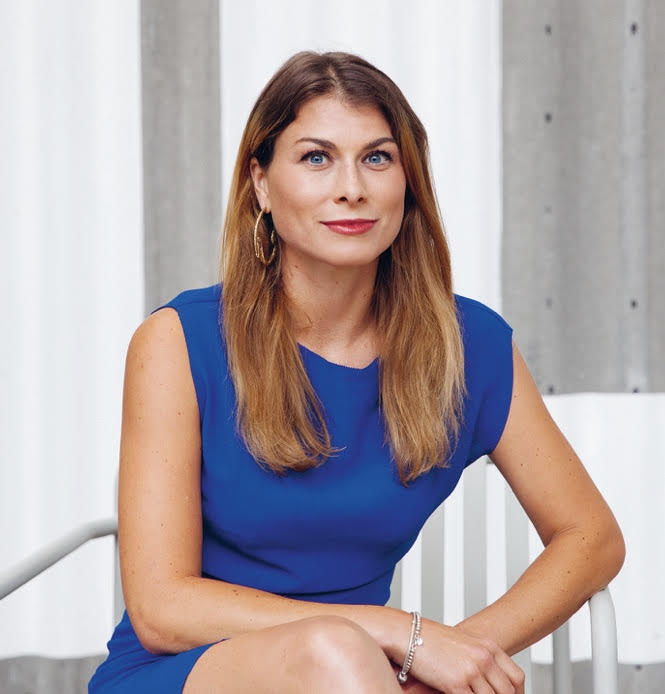Impact Innovators in the Zinc Ecosystem: Margarita Skarkou, Zinc Fellow

Margarita Skarkou is an investor at 2150, a VC firm committed to tackling the biggest sustainability challenges on the planet. Margarita is an active angel investor, startup advisor and supporter of female founders in cleantech. She is a Zinc Fellow supporting founders and teams in Zinc’s climate missions.
Can you share a bit about your professional background?
I have spent around 10 years working across the construction, international development and finance sectors. Prior to joining 2150 I was an investor in the Sustainable Impact Capital team at Barclays and previously co-founded Barclays Ventures, a business unit set up to invest directly into tech companies, and partner with those startups to create new products and services. My focus there was on ESG-aligned and wellbeing investments, which is how I first connected with the Zinc community.
What excited you about joining the Zinc Fellows network?
I had been a supporter of Zinc since the early days, so when the first climate-focussed mission was announced, it felt like a great opportunity to join as a Fellow, to get more hands-on and actively involved in supporting some of the founders. I was really excited by the purpose-driven approach at Zinc’s core. They are one of the pioneers in this space, investing in people that want to have a societal impact at scale. Their approach really aligns with what I personally want to achieve in my career, building businesses that are commercially successful and also having a positive impact. Zinc does a great job at bringing a really diverse group of people together. Diverse in all senses. They are opening up this opportunity and community to people who may be brilliant, but haven’t got a personal network developed yet, or the financial means to take significant financial or carrier risks.
Could you share a bit about your approach to supporting founders?
Working with founders is the reason why I do what I do. I love this part of the job! The founders that I meet through Zinc generally tend to be first-time founders with a lot of experience, credibility and really interesting backgrounds, but they are not necessarily seasoned entrepreneurs yet. I try to tailor the support I offer to each company or founder, depending on what I think will be most useful. Generally, I find that listening, asking questions, challenging in the right way and being a sounding board for people to process and evolve their ideas and thinking are some of the most helpful things I can offer. I also bring an investor mindset so I can coach founders in what investors will be looking for and how best to prepare for that journey. I have regular conversations about whether the venture capital route is right for them and the business they are building. Sometimes other routes are a better fit, and that is totally fine. Having conversations about the scale of ambition early on is really important. Finally, I try to offer support by making useful introductions and connections to the right people at the right time.
What have been some of your personal highlights of being part of the Zinc network to date?
I see this role as a Fellow being a two-way street and I love that I get to learn so much and broaden my own thinking across many topics. A lot of the Zinc founders bring a huge amount of experience with them and I’m constantly learning from them. I’m really interested in the next Zinc mission exploring the intersection of climate and health, and am currently doing a lot of research in that space. I have an engineering background, but don’t have medical or scientific training, so being able to attend sessions and discussions on some of these topics has been super helpful for my own personal learning.
What are you excited about right now?
Working in climate and reading the news, it’s easy to become quite pessimistic about the trajectory we’re on. However the continued interest and excitement in climate tech investment is definitely something to celebrate and be excited about. Climate change and growing populations mean big shifts are coming in where people live, how they’re fed and how land is being used. I’m spending more time thinking about climate justice and what this adaptation really means. I am excited about the innovation currently happening around biodiversity, land management, links between health and climate change and food security.
Looking ahead, what personal impact do you hope to have had?
Maybe it’s cliche to say this, but I have a young daughter and being a parent keeps me focussed on why this mission is so important. I grew up on a Greek island, largely outdoors, close to nature and in a family that was, already in the 90s, deeply concerned about our impact on the planet. I furthered this interest by studying civil and environmental engineering and becoming involved in sustainable development projects in the global south. It has always been a given that I would dedicate my career trying to address climate change.
In Greece right now there are hundreds of wildfires right across the country, and the impact of that damage will be colossal, not just in the obvious ways but less obvious longer term damage from air pollution and diminished resilience against floods. I think about what this is going to look like in 20 or 30 years, when my daughter is my age, and that drives me to act now and play my part today. Supporting and investing into founders developing solutions to help mitigate against climate change and biodiversity loss and adaptation is how I aim to leave my mark.
Who inspires you on this journey?
I’m inspired by so many people I meet working in this space, particularly the founders. When you meet people who feel so strongly and are so committed that they’ve decided to dedicate a chunk of their lives to solving a big problem, that’s truly inspiring.
What advice would you give to someone considering joining the next Zinc mission as a founder?
Everyone I’ve ever interacted with through this community is brilliant, intellectually and in many other ways. In all the conversations I’ve had, I’ve never heard anyone say they regretted joining a Zinc programme. If you’re thinking about it, then go for it! And if you’re unsure, then reach out to the Zinc team, fellows or founders from previous missions. There is very little to lose, and potentially a lot to gain!
Do you want to start a mission-led business of your own? Applications for our new venture builder are open, find out more and apply today here.
Join the Zinc community
Stay up to date with all Zinc updates and future posts as part of our fast growing community.
Featured Resources
Impact Report 2023
We started Zinc with the hypothesis that missions are an effective way to attract highly ambitious, talented and experienced groups of innovators, who might not recognise themselves as “classic entrepreneurs” but are ready and able to start a new commercial and successful venture to tackle some of our most pressing societal issues.
The world has overcome the sorts of challenges we face today when it has adopted a mission-based approach to the biggest problems and brought together world-class talent to invent and innovate, e.g: NASA and landing a man on the moon, the LSE blueprinting the British welfare state, or the Gates Foundation aiming to eradicate diseases.
On this basis and assumption, we designed Zinc as a new mission-based Venture Builder — a place where global talent, ‘impact makers’, can join to experiment and develop new solutions to our most pressing societal issues.
To Eliminate Environmental Threats to Our Health
Environmental health threats pose a grave danger to human health and well-being, causing suffering to individuals and communities worldwide. These threats, which include chemical pollution, climate change, and biological hazards, cause acute and chronic diseases and exacerbate existing health conditions.
To protect those we care about, we must tackle the causes of environmental degradation, shield people from the consequences of environmental harm, and, where protection fails, we must mitigate the health impacts they suffer.
This demands action to improve all aspects of our environment: soil, food, air, water, and the built environment. It requires us to focus on every aspect of human health to reduce suffering.
Entrepreneurship and technology are powerful means to tackle these challenges. That’s why we are backing 70 founders to build innovative companies addressing this mission.


